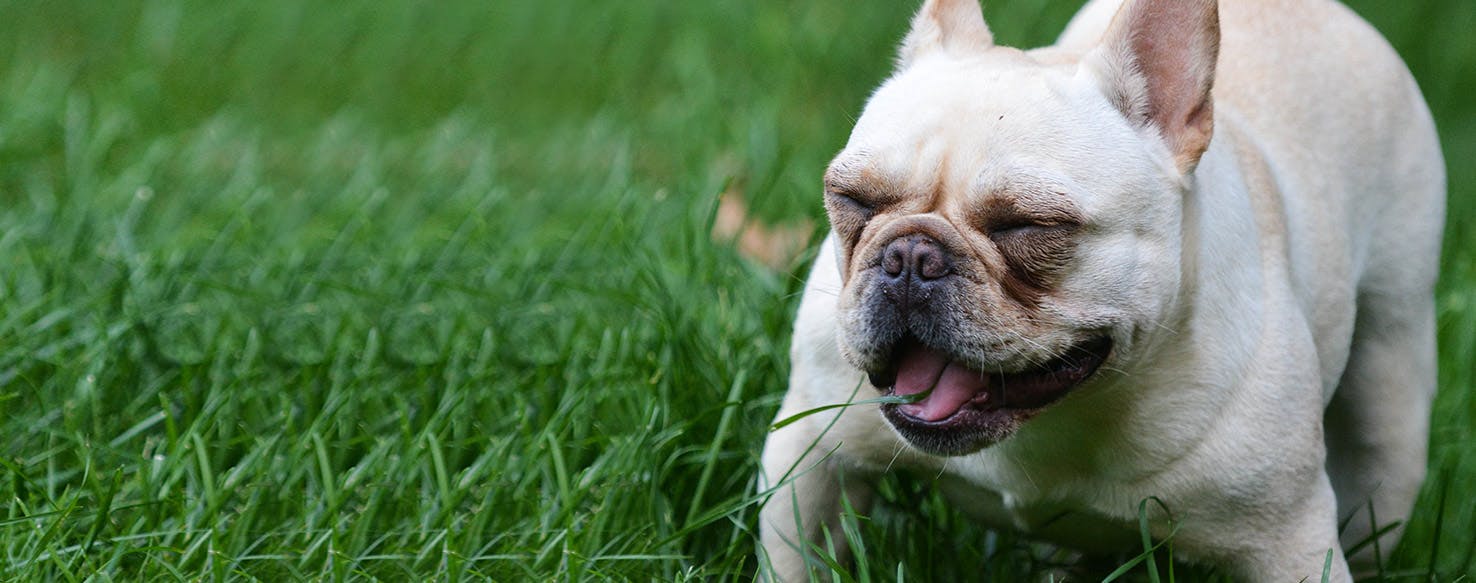Dogs eat grass, and no one is sure exactly why. Is it because they are sick? Does it make them sick? That is the age-old question, usually brought up after your dog snacks on your lawn, followed by them throwing up the grass all over your good carpet!
Why do dogs eat grass, and does it make them sick? Can it hurt them? Read on for more information on dogs and grass eating behavior.
Why is my dog eating grass?
Why dogs eat grass is not exactly well understood. There are several possible reasons:
■ It tastes good. Dogs are carnivores, but they have omnivorous tendencies.
■ It contains some nutrients they are trying to obtain. Although, since dogs cannot digest grass well this would not be a very effective way of obtaining nutrients missing from their diet.
■ They are experiencing gastrointestinal problems, and grass may stimulate vomiting by irritating the throat and stomach lining, and vomiting may relieve tummy troubles. If you suspect your dog is having gastrointestinal troubles and eating grass to relieve them, you should seek out your veterinarian to address any digestive conditions if the behavior persists.
■ It may be a residual behavior from their feral days, when eating grass may have served to disguise their scent and help them hunt.
■ It may stimulate motility in the GI tract to help the dog rid themselves of intestinal parasites.
■ Your dog may be bored, stressed, or just hungry and looking for a snack. Providing them with chew toys or several small meals, instead of one or two large ones, may resolve this.
Is eating grass safe for my dog?
Usually there is little risk in your dog eating grass as it is not toxic, however, the pesticides and fertilizers we put on grass can be toxic, or cause allergies. So be aware what products you use on your lawn if your dog is going to be exposed to it.
Also, if large amounts of indigestible grass are consumed, blockages in the gastrointestinal tract can occur. Blockages, if severe, can be life-threatening if the passage of gas and foodstuffs is completely stopped and circulation is cut off to the small intestine or other digestive organs.
Grass can also become lodged in a nasal cavity, causing irritation and even infection of the upper respiratory tract, or can become inhaled deep into the lungs where lung infections can occur.
It is possible that your dog is seeking to add nutrients from the grass to their diet. Providing your dog with vegetables that they can digest may provide nutrients more effectively. Switching foods and adding supplements to support your companion's digestive system health may be necessary to address any deficiencies.
Keep an eye out for issues
Some grass eating behavior is normal, but if it is excessive or is causing problems, you may need to take steps to address it. Seeking veterinary advice to ensure that your dog is getting everything they need in their diet, and checking their digestive health to ensure that a problem does not exist that requires veterinary care is recommended.
If grass eating behavior persists and is causing problems, you may need to take steps to supervise your furry friend when they are outside. Observe them at play to prevent the ingestion of large amounts of grass, which can result in intestinal blockage, or to prevent them from consuming treated grass that may have chemicals that can cause a reaction. Usually, grass eating behavior is only sporadic with dogs and rarely results in a problem. If it does, steps to address it will need to be taken.


